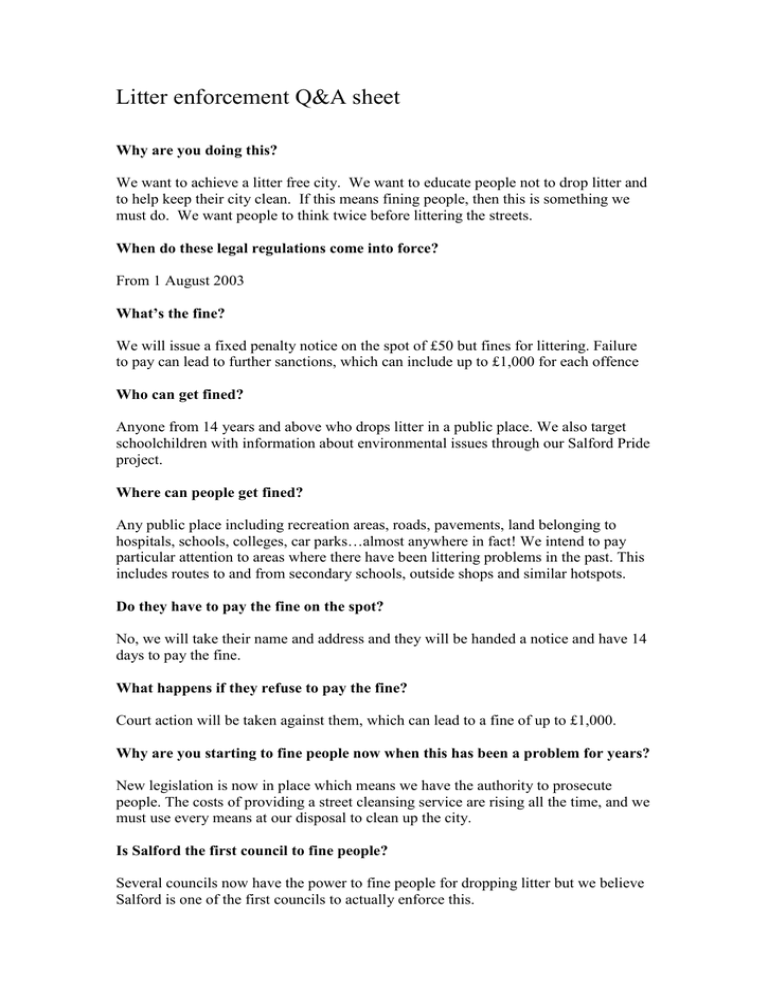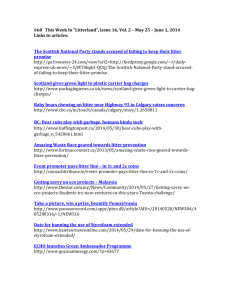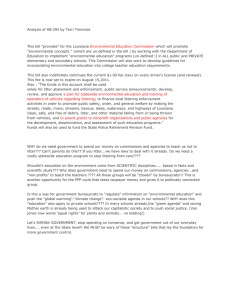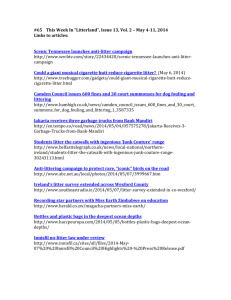Litter enforcement Q&A sheet
advertisement

Litter enforcement Q&A sheet Why are you doing this? We want to achieve a litter free city. We want to educate people not to drop litter and to help keep their city clean. If this means fining people, then this is something we must do. We want people to think twice before littering the streets. When do these legal regulations come into force? From 1 August 2003 What’s the fine? We will issue a fixed penalty notice on the spot of £50 but fines for littering. Failure to pay can lead to further sanctions, which can include up to £1,000 for each offence Who can get fined? Anyone from 14 years and above who drops litter in a public place. We also target schoolchildren with information about environmental issues through our Salford Pride project. Where can people get fined? Any public place including recreation areas, roads, pavements, land belonging to hospitals, schools, colleges, car parks…almost anywhere in fact! We intend to pay particular attention to areas where there have been littering problems in the past. This includes routes to and from secondary schools, outside shops and similar hotspots. Do they have to pay the fine on the spot? No, we will take their name and address and they will be handed a notice and have 14 days to pay the fine. What happens if they refuse to pay the fine? Court action will be taken against them, which can lead to a fine of up to £1,000. Why are you starting to fine people now when this has been a problem for years? New legislation is now in place which means we have the authority to prosecute people. The costs of providing a street cleansing service are rising all the time, and we must use every means at our disposal to clean up the city. Is Salford the first council to fine people? Several councils now have the power to fine people for dropping litter but we believe Salford is one of the first councils to actually enforce this. What legislation do these powers fall under? They are the Environmental Protection Act 1990, the highways Act 1980 and the Refuse Disposal (Amenity) Act of 1978. For all offences under these Acts, penalties may be imposed by either the city council or the magistrates or Crown Court, ranging from a fixed penalty notice to a fine of £1,000 for non-payment. What are you going to do with the money collected from fines? It all has to be paid to the secretary of state. However, we are currently lobbying government to be allowed to plough this money back into keeping our streets clean. What happens if there isn’t a litter bin nearby? There are nearly 1,300 litter bins in the City of Salford so there should be one within walking distance of most hotspots. If not, we ask people to be responsible and take their litter home. What is the cost of keeping the streets clean? Currently the council clears 234 tonnes of litter of Salford’s streets every year, costing the tax payer £2 million pounds every year. This initiative could help save the council a substantial amount of money which can be put to better use. Who can help? Everyone! Headteachers, community groups, councillors – any individual. It’s your city. Please help us. Shouldn’t you educate people, not prosecute them? We are doing all we can to get the message across. This includes providing help and support to community groups, and visiting schools with keep the city clean message. These fines are just one of a range of measures we need at our disposal to help keep the city clean. Who can I call? To request a self-help community clean up, call 909 6500 and ask for Damien Thornton. To request a visit to your school or community group for a session on environmental issues, call 909 6500 and ask for Suzanne Jones. On any issue related to litter enforcement, call 909 6500 and ask for Graham Hatton.






